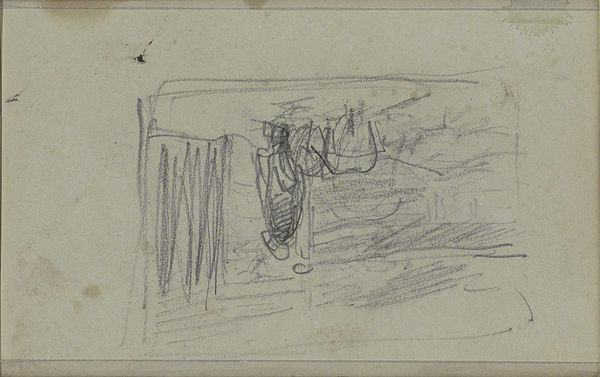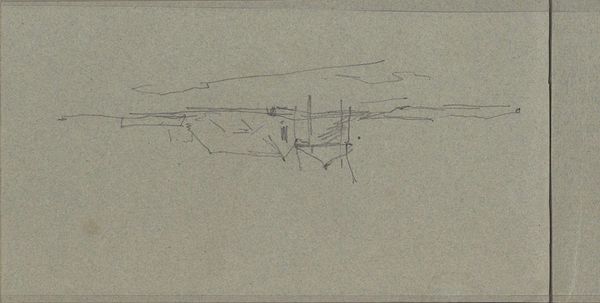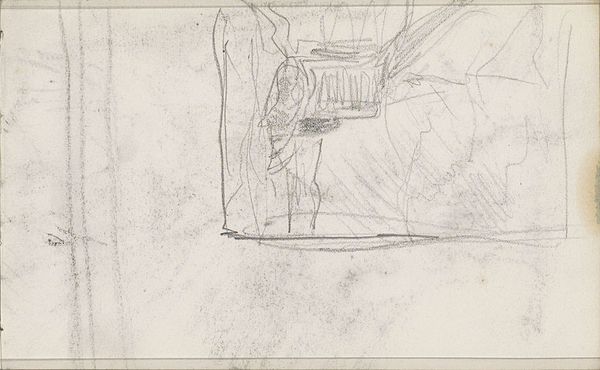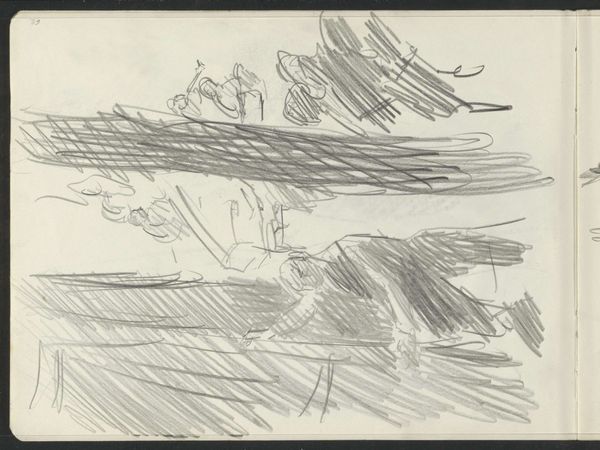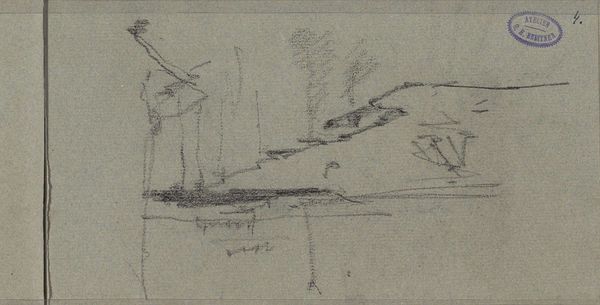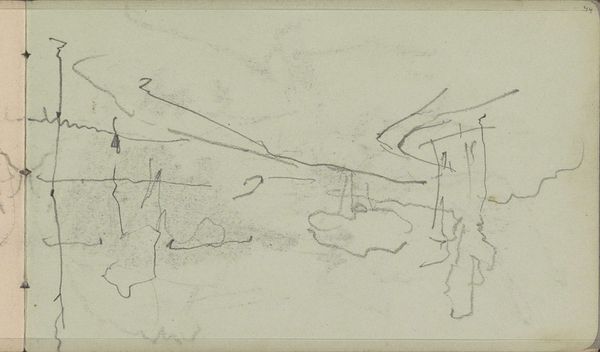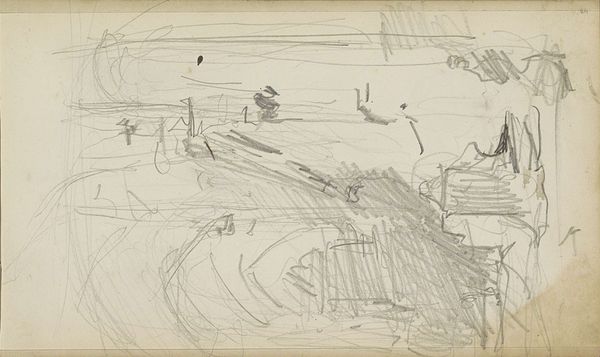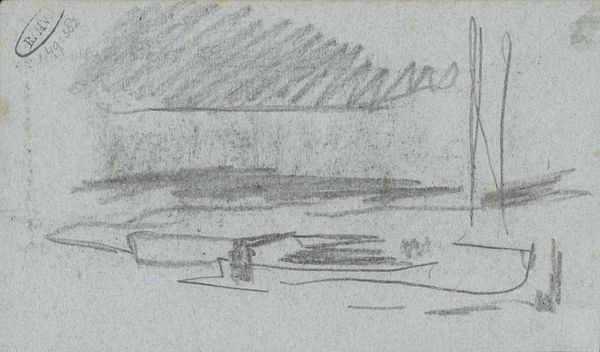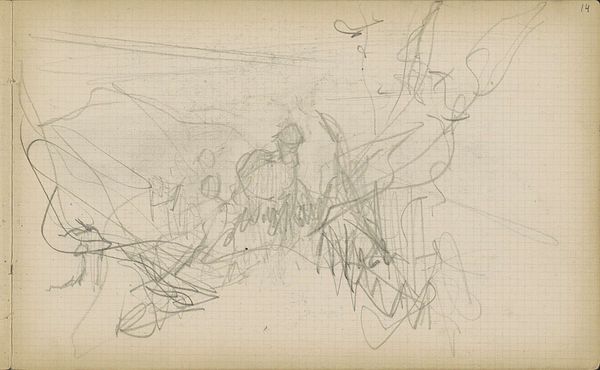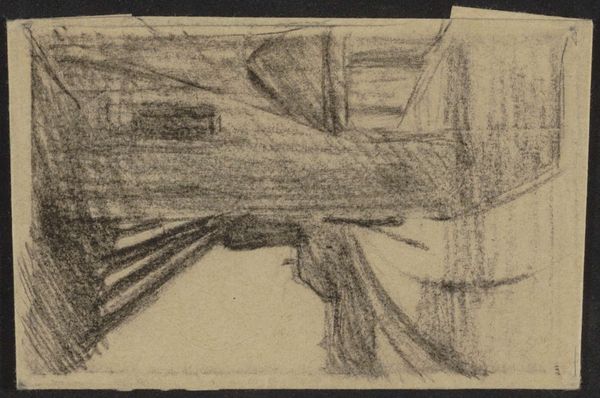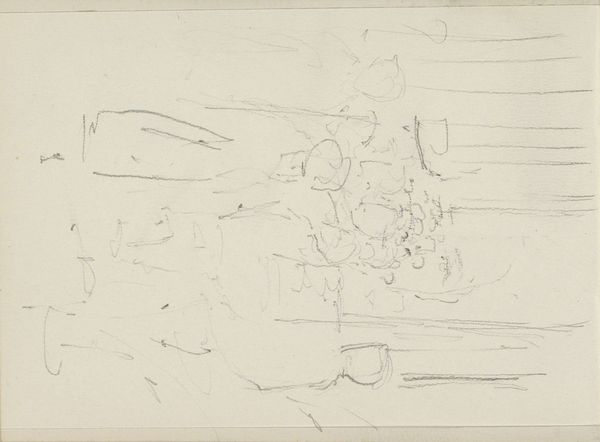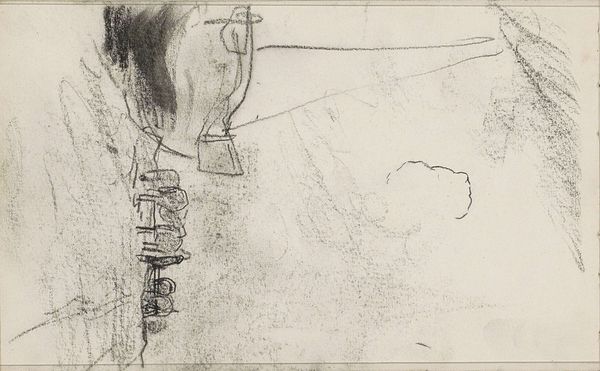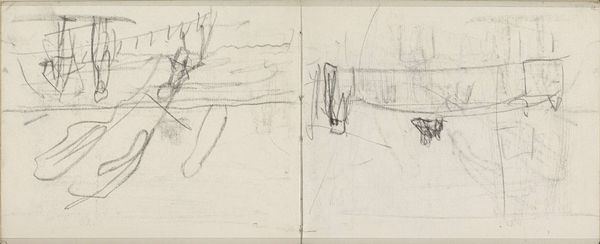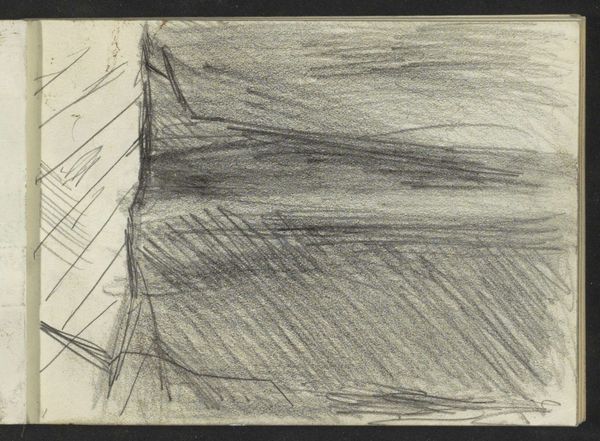
drawing, pencil
#
drawing
#
impressionism
#
landscape
#
pencil
#
realism
Copyright: Rijks Museum: Open Domain
Editor: This is "Rowboat on the Beach," a pencil drawing by Jozef Israëls, likely done sometime between 1834 and 1911. I find the sketchiness of it quite compelling. The visible strokes really bring attention to the…well, the act of drawing itself. What stands out to you? Curator: What interests me immediately is the raw quality of the mark-making. The artist isn’t trying to hide the labor involved. Consider the social context: Israëls, working in a time of industrial expansion, deliberately shows us the means of production of this image. He’s using a humble pencil, mass-produced but directly controlled by his hand, to depict a scene presumably involving the labor of fishermen. Editor: So, you’re saying the choice of materials and the drawing style are connected to the subject matter? Curator: Precisely! Think about the availability of materials like pencils, paper, and even the paints that might have been used instead. Those factors dictate what art gets made and who gets to make it. What kind of labor do you imagine went into both the creation of the artwork itself and the scene it represents? Editor: Well, the drawing looks quite immediate, maybe a quick study. The boat…it makes me think of tough, physical work, pulling nets. It seems almost a document of their lives and labor. Curator: Exactly. Israëls gives dignity to the everyday struggles through the careful, visible application of his own labor to create this work. Even the sketchiness contributes to the sense of immediacy, blurring the line between high art and the working world. Editor: I never thought about a drawing showing the production of labor so literally. That makes me see the artwork in a new light. Curator: It's a way to ground the art in tangible things –the pencil, the paper, the social realities they reflect.
Comments
No comments
Be the first to comment and join the conversation on the ultimate creative platform.
